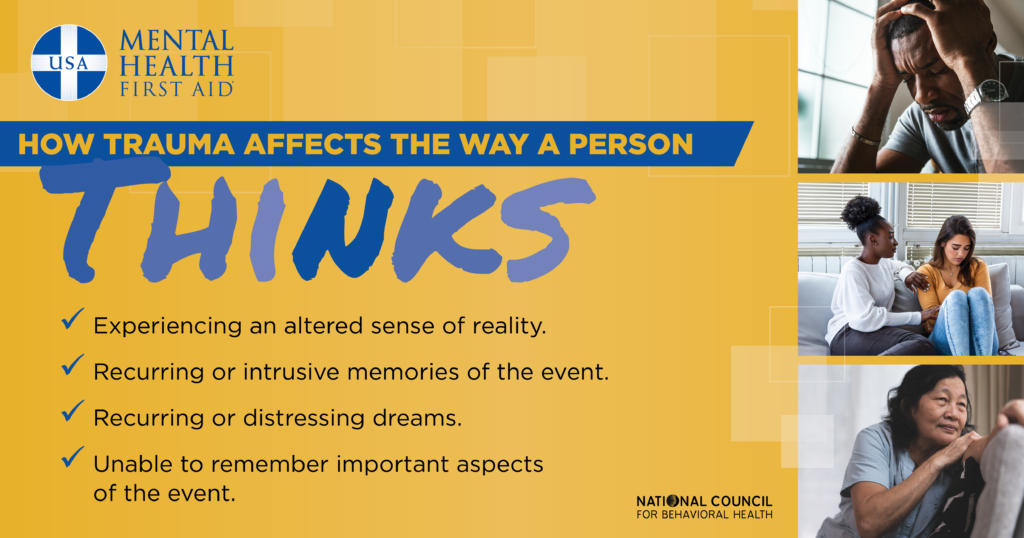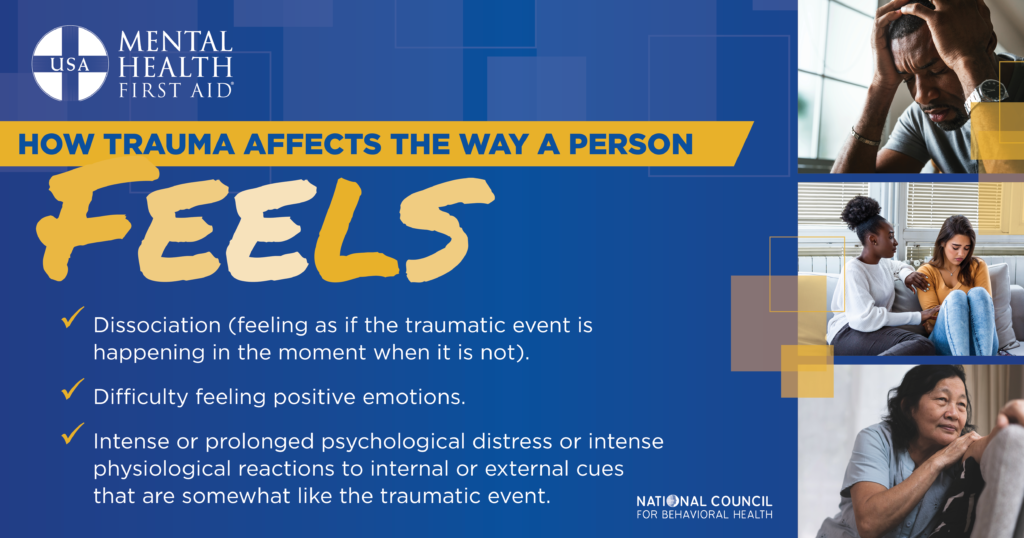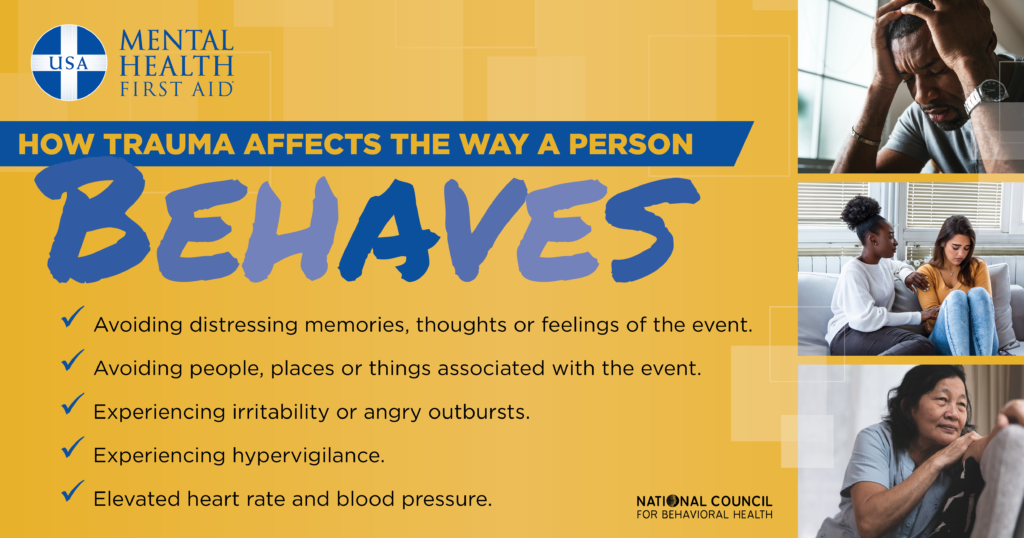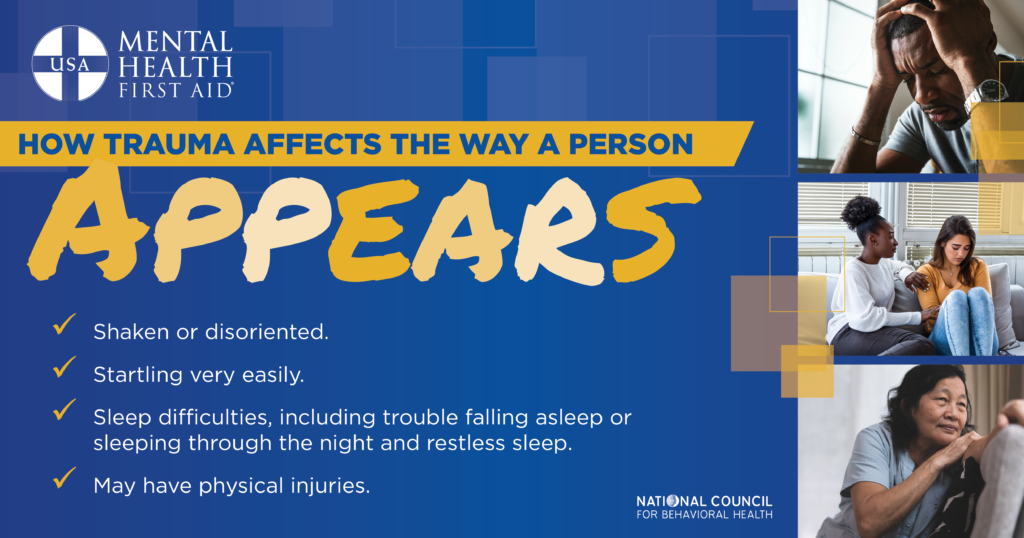When thinking about trauma, many of us immediately think about mass traumatic events like terrorist attacks, mass shootings, torture, combat, or severe weather events. Trauma includes these things, but also so much more.
According to the Mental Health First Aid (MHFA) curriculum, a trauma is a shocking and dangerous event that someone sees or experiences, and it’s associated with levels of stress that can harm physical and mental health. Trauma can include things like verbal, physical or sexual abuse; emotional or physical neglect; a significant loss; alcohol/drug exposure; poverty; bullying, racism or discrimination; or even a pandemic.
Which brings us to COVID-19. Along with the other events of 2020, we’ve felt COVID-19’s impact in all aspects of our lives, including our physical and mental health. Many people are experiencing challenges related to feelings of isolation, financial hardship and unmet basic needs. For some, the stress is added to preexisting trauma, adversity and disparities. For others, these issues bring new grief, loss and the increased risk for violence and abuse in the home. As a result, nearly one in five adults says their mental health is worse today than it was at this time last year.
To address traumatic stress that you or your loved one may be facing — whether it’s because of COVID-19 or something else — it’s important to understand how trauma can impact a person’s daily life.
It is common to feel upset after something traumatic happens. But while some people may feel better in a few weeks or months, others may experience changes in thoughts, feelings or behavior that impact their daily lives. They may need more help over a longer period of time to heal. Supporting a person immediately after a traumatic event and providing ongoing support can prevent symptoms that cause distress and lifelong physical, mental and emotional challenges.
If your loved one or peer is struggling because of COVID-19 or another traumatic event, ask them about their current situation and life experiences without judgment or blame. Find out if they are being harmed or are safe. Having an open and honest conversation about how they are doing and what they need can be life changing and get them the support they may need.
MHFA can help you #BeTheDifference for the people you love, and it provides tools to protect your own mental health during challenging times. Find a course here.



